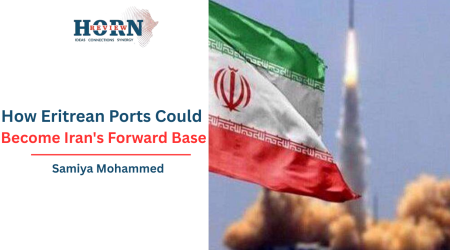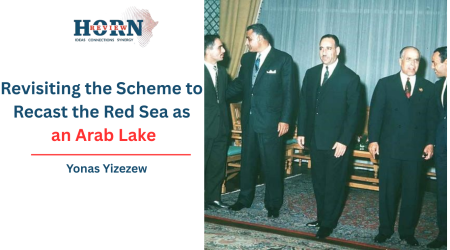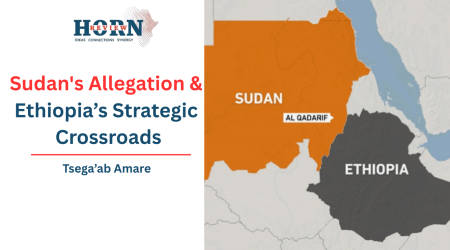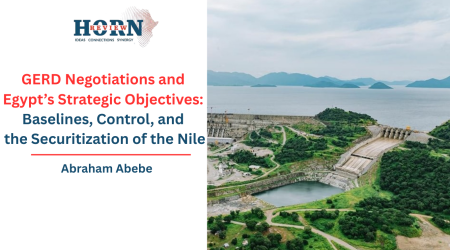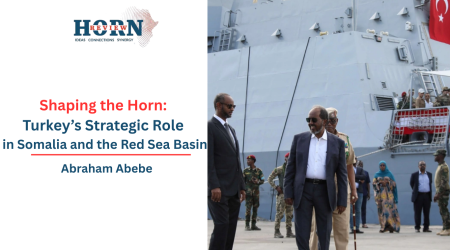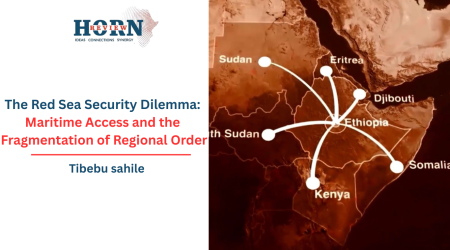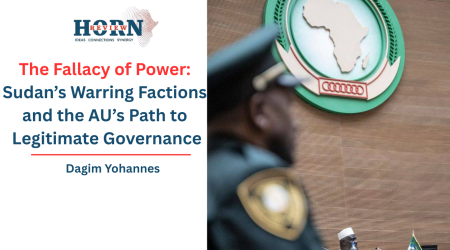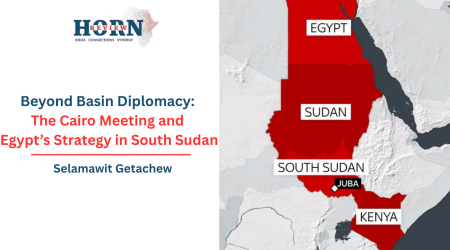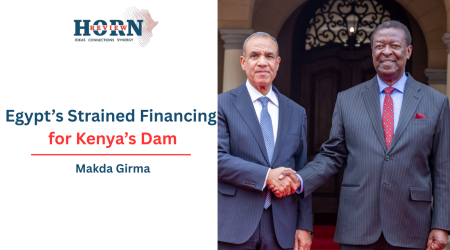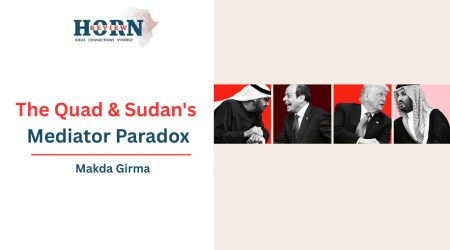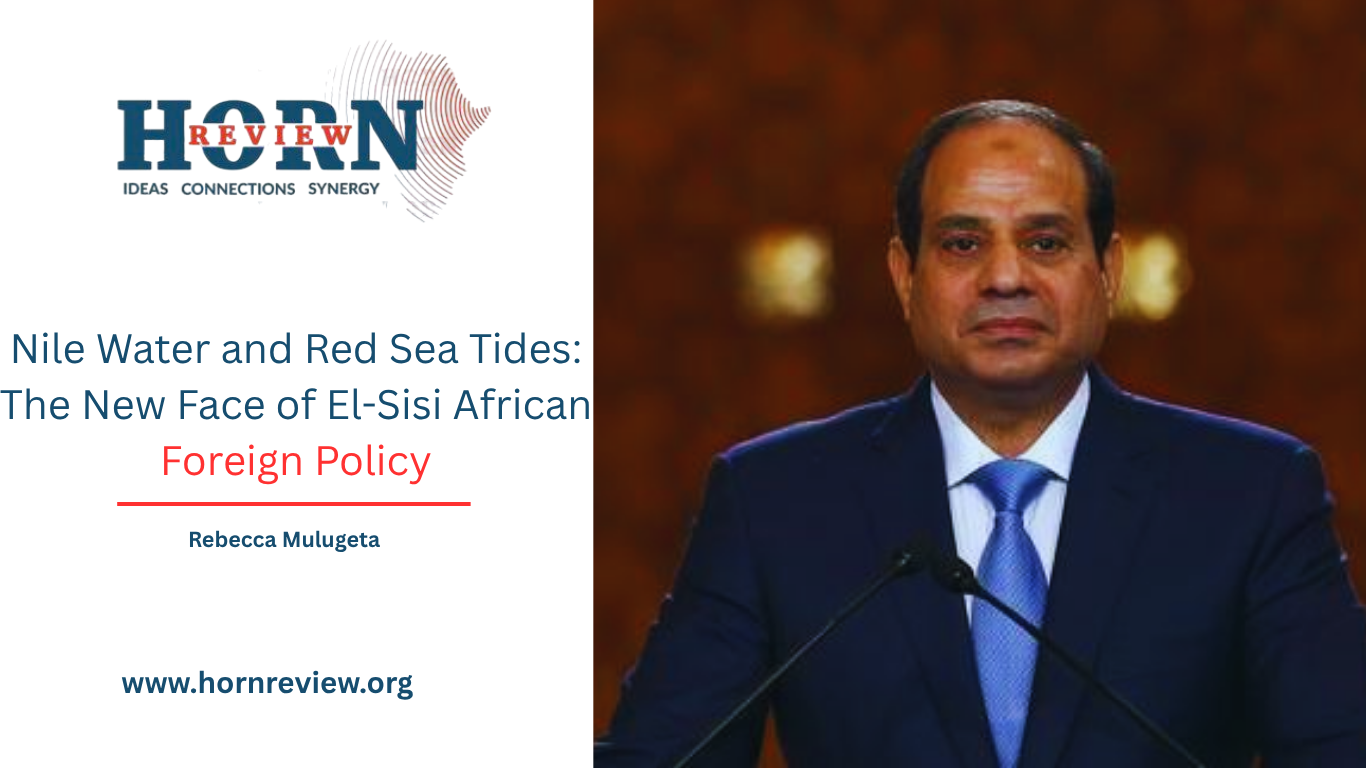
12
Nov
Nile Water and Red Sea Tides: The New Face of El-Sisi African Foreign Policy
The African foreign policy of Egypt under the leadership of President Abdel Fattah el-Sisi is not a simple diplomatic give-and-take with fellow Africans; it is nothing short of a strategic reboot. After decades of misaligned resource allocation, with prioritization given to the Gulf and Western engagement in a policy framework that reached its terminal obsolescence during the years of Sadat and Mubarak, Cairo has executed a sharp pivot to the continent.
This re-entry, however, is single-minded and defining in its application to the interests of Egypt with a view to limiting the ambition of Ethiopia in the two waters-the Nile and the Red Sea-particularly in the geo-critical areas of North Africa and the Horn. Although the two leaders, Nassera and Sisi, focused on African diplomacy, specifically, Sisi’s approach leverages diplomatic engagement as a containment mechanism against Ethiopia’s growing regional influence, prioritizing immediate geopolitical leverage over pan-African unity. This transactional, results-oriented strategy thus starkly contrasts with the ideologically driven anti-imperialist value system of Nasser.
Egypt’s resurgence as an active player in Africa reflects a dramatic and multifaceted evolution of its foreign policy, underpinned by the complex interplay of historical legacies, contemporary regional dynamics, and salient strategic imperatives. Historically, its diplomatic identity and orientation were Arab-focused, tending to be closely aligned with the Arab world and Western allies while maintaining an ambivalent or even antagonistic relationship with many African neighbors, especially those in the Horn of Africa and North Africa. The current foreign policy is one of conscious recalibration, highly supported by President Abdel Fattah al-Sisi, placing emphasis on a multi-dimensional and calculated re-engagement with Africa, with particular focus on the Horn of Africa and North African states.
During the period of Gamal Abdel Nasser (1956-1970), Egypt personified a pan-African dream that linked African identity with Arab nationalism. Nasser positioned Egypt as a continental power with a great commitment to African liberation, solidarity, and anti-colonial struggles. He forged excellent diplomatic, cultural, and political relations with the emergent African states and liberation movements. Egypt was viewed as a bridge-building leader between Africa and the Arab world, leading in the way toward the continental decolonization of Africa and the unity of its peoples. This era reflected an Egyptian foreign policy that emanated from African identity and its role in continental leadership, believing in common destinies.
After Nasser, Egypt’s African engagement receded under Hosni Mubarak from 1981 to 2011. During Mubarak’s tenure, African diplomacy was deprioritized for maintaining regional stability, economic liberalization, and increasing alignments with Western and Gulf Arab powers. The Arab identity became more influential than the African affiliation; African neighbors were often perceived as secondary or problematic, with the growth of security concerns about Islamist militancy and conflicts in the region. This cautious, sometimes distant posture limited Egypt’s involvement in Africa, especially toward the Horn, which was increasingly tense due to Nile water security and Ethiopia’s competition. The hallmark of Egypt’s policy in this era was a limited investment and hesitant outreach toward the African states.
Under President al-Sisi, Egypt has decisively broken with Mubarak’s limited approach and repositioned Africa as a strategic priority. Several interconnected factors have driven this shift. Central among these is the geopolitical rivalry with Ethiopia over the Grand Ethiopian Renaissance Dam (GERD), which challenges Egypt’s historic claims to the Nile, that is the lifeline of its civilization. In response, Egypt moved from bilateral negotiations to building a wider coalition across the Horn and East Africa designed to diplomatically isolate and contain Ethiopia and uphold Egypt’s water rights. This coalition is anchored on trilateral partnerships with Sudan and Uganda, both downstream Nile countries whose cooperation is indispensable for counterbalancing Ethiopian influence.
Egypt’s involvement has further increased in the case of Somalia and Djibouti. In the chronically unstable Somalia, Egypt pursues military cooperation, peacekeeping participation within African Union missions such as AUSSOM, arms support, and logistical aid with the aim to stabilize Somalia and prevent a security vacuum that might be exploited by hostile regional or transnational actors. In Djibouti, strategically positioned at the Bab-el-Mandeb Strait, a chokepoint that controls access to the Red Sea, Egypt fosters military agreements and relations to ensure the security of maritime trade routes critical to global commerce and energy. This position presents Egypt with opportunities for projecting maritime power and safeguarding critical economic corridors considering Egypt’s containment strategy against Ethiopia extends beyond diplomatic leverage into the sphere of regional security architecture. This is evidenced by Cairo’s efforts to negotiate limits on Ethiopia’s peacekeeping roles and its reported attempts to deploy forces exceeding its own mandated quotas. Crucially, this dynamic suggests an intent to utilize Somalia as a third-country operational asset for potential military friction with Ethiopia. The strategic calculation here is clear: by fostering a challenge to Ethiopia via an external party, Egypt effectively avoids a direct, resource-intensive confrontation on its own frontier, thereby prioritizing the establishment of a regional counter-balance over a genuine, primary focus on Somali peace and stabilization.
The scale of this engagement is not simply about diplomatic reciprocity; Egypt aims to regain continental leadership, shake off the legacy of African isolation, and have a stronger say in African political, security, and economic architectures. Following the 2013 coup, Egypt was suspended from the African Union but readmitted in 2014, signaling its intent to rebuild inclusive relationships and deepen cooperation across infrastructure development, trade, water diplomacy, and counterterrorism initiatives. Above all, its economic integration efforts, especially its active role in AfCFTA, serve to diversify Egypt’s trade partnerships, attract investments, and foster durable interdependencies that reinforce its political ambitions on the continent.
Egypt’s new interest in the Horn of Africa also epitomizes a sophisticated transformation of classic containment strategies conventionally used against Ethiopia. Classic containment through diplomatic isolation, military partnerships, and economic alliances remains, but Egyptian behavior now transcends bilateral antagonism. The country employs fluid, multi-vector diplomacy involving state and non-state actors, hybrid alliances, and leverage of supra-national African institutions like the African Union and Horn of Africa regional bodies. This network approach recognizes that modern regional influence demands complex coalitions, fluid alliances, and multi-dimensional power projection beyond military or merely bilateral diplomacy.
The coalition that Egypt maintains with Sudan, Uganda, Djibouti, Somalia, and Eritrea forms a “containment constellation.” This constellation is strikingly asymmetrical, flexible, and encompasses various mutually reinforcing interests and grievances over territorial disputes, economic corridors, and terrorism fears, altogether strengthening the containment against Ethiopia. Unlike earlier models of containment that were heavily dependent on direct bilateral or military dominance, this particular constellation uses economic interdependence, peacekeeping roles, and proxy militia sponsorship as means for indirect influence, risk management, and the exploitation of regional fault lines along several dimensions.
The GERD issue is more than a water security dispute; it reflects a new kind of transnational contest that is redefining sovereignty norms in relation to vital shared resources. Egypt’s efforts to diplomatically isolate Ethiopia by mobilizing regional powers and international law articulate principles of collective sovereignty within African institutional frameworks, amounting effectively to weaponizing the legal and normative mechanisms to limit Ethiopia’s unilateral upstream developmental discretion. This normative contest evidenced a shift from territorial or military rivalry toward a complex struggle over the principles and rules of inter-state conduct in Africa. The rejection by Ethiopia of binding agreements and the assertion of sovereign rights constitute a challenge to Egypt’s vision, which has made the GERD dispute typical of such arising African diplomacy where sovereignty is contested, negotiated, and fluid rather than fixed.
A novel and critical dimension of Egypt’s strategy is its expansion into maritime competition, moving beyond traditional land-based diplomatic rivalry. Ethiopia’s recent ambitions to develop Somali ports and naval bases, such as in Somaliland, extend the contest into the maritime domain, transforming influence boundaries in the Red Sea corridor. Egypt’s military presence in Somalia combined with efforts to secure Djibouti’s cooperation underscores a hybrid containment approach that includes naval diplomacy, control of strategic maritime chokepoints, and economic corridor influence. This maritime strategy aims to prevent Ethiopia’s emergence as a blue-water power in the region, thereby complementing Egypt’s terrestrial and Nile basin focus.
Egypt’s containment strategy, therefore, works on several fronts-terrestrial, fluvial (the Nile basin), and maritime-into an integrated framework of regional dominance. Naval power projection, alliances with critical coastal states, and economic leverages ensure a complete platform to influence regional balances. The policy shift also involves the redefinition of Egypt’s identity politics. Essentially, the state promotes a dual Arab-African identity, both pragmatic and strategic, as it grants Egypt a new opportunity to bridge historic pan-African legitimacy with contemporary geopolitical necessity. More than a political brand, this flexible identity is a sophisticated tool that enables Egypt to implement a multi-regional containment strategy, leveraging partnerships with Gulf Arab states, Western powers, and continental Africa while negotiating historic antagonisms and fostering a renaissance identity commanding respect and influence across diverse geopolitical spaces.
While Egypt’s containment constellation is focused on Ethiopia, it reshapes regional diplomacy toward a more fragmented and competitive landscape. Hybrid components of military deployment, support for proxy groups, and disputes along legal dimensions further raise risks of protracted instability and conflict, most particularly affecting Somalia and Sudan, amid sharpened rivalries within the Red Sea. These growing complexities are pushing the African Union and international stakeholders further into the intricacies of mediation on conflicts framed by questions not just of territoriality but of differing conceptions of sovereignty and governance of shared resources.
Egypt’s Africa policy under al-Sisi represents a new model of post-colonial African regional power projection. Infused with classic elements of containment, it innovatively mixes normative, economic, military, and maritime strategies together within a dynamic and fluid continental constellation. Such a multi-level approach reflects Egypt’s keen understanding of interconnected African challenges and layered rivalries; it dynamically reinterprets its legacies through pragmatic realpolitik, adaptive diplomacy, and identity reconfiguration.
The result is a multi-domain containment framework against Ethiopia that profoundly reshapes African sovereignty, diplomacy, and regional order conceptions in one of the continent’s most geopolitically sensitive theaters. Egypt’s renewed engagement with Africa moves beyond conventional Nile-focused or even bilateral rivalry narratives and offers, instead, a wide and sophisticated analytical prism through which one may appreciate how the country constructs influence, competition, and security in the 21st-century Horn of Africa by way of an innovative deployment of economic, military, diplomatic, and normative tools. This approach not only secures national interests but also redefines how regional influence and power struggles are conducted amid emerging African regionalism and global geopolitical shifts.
By Rebecca Mulugeta, Researcher, Horn Review

